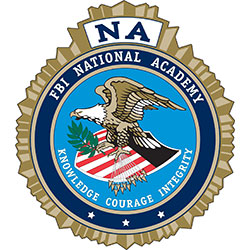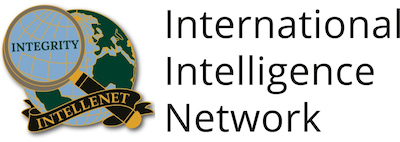Introduction to Private Detective Surveillance
Definition and Importance
Surveillance is a fundamental investigative tool used by private detectives to gather evidence in various cases, including criminal investigations, fraud detection, infidelity, and missing persons cases. Private investigator surveillance involves discreet observation of individuals, locations, or digital activity to uncover valuable information.
Historical Perspective
The practice of surveillance dates back to ancient civilizations, where spies and informants were used for intelligence gathering. Over time, surveillance techniques have evolved with advancements in technology, transitioning from traditional stakeouts to digital and electronic monitoring methods. Today, Bulldog PI employs state-of-the-art tools to conduct legal and ethical surveillance operations.
Types of Surveillance Techniques
1. Physical Surveillance: The Traditional Approach
Physical surveillance involves directly monitoring a subject’s movements and behaviors. Private detectives utilize mobile (following a subject) and static (stakeouts from a fixed location) surveillance.
- Stakeouts: Used for observing patterns, such as infidelity cases.
- Foot and Vehicle Tracking: Ensures discreet monitoring while documenting evidence.
🔹 Legal Considerations: Investigators must remain in public spaces, avoid trespassing, and adhere to anti-stalking laws.
2. Digital Surveillance: Monitoring Online Footprints
Digital surveillance involves tracking online activity, including:
- Social media monitoring (public profiles, posts, and interactions)
- Browsing history analysis (when legally permissible)
- Public records and email traces
🔹 Legal Considerations: Bulldog PI only accesses publicly available information and ensures compliance with privacy laws.
3. Technical Surveillance: Capturing Visual and Audio Evidence
Technical surveillance employs advanced tools such as:
- Hidden cameras and body cams
- GPS tracking (where legal)
- Dashcam footage for movement tracking
🔹 Legal Considerations: Video and audio recordings are permissible in public spaces but may require two-party consent in some states.
4. Interviews and Interrogations: Gathering Human Intelligence
Private investigators often interview witnesses, neighbors, and associates to gather critical intelligence. Interviews can reveal patterns, motivations, and hidden details that other methods may not uncover.
🔹 Legal Considerations: All interviews must be voluntary, without coercion or deception.
Advanced Surveillance Tools and Technologies
1. Drones and Aerial Surveillance
Drones provide an aerial view of subjects in outdoor settings, offering advantages such as long-range observation and discreet monitoring.
2. Spyware and Electronic Monitoring
Spyware and surveillance software can track communications, keystrokes, and mobile device activity.
🔹 Legal Considerations: Investigators cannot hack personal devices or access private communications without proper authorization.
3. Covert Listening Devices
Private investigators may use audio bugs, wireless microphones, and wiretaps (only when legally permitted) to capture conversations.
🔹 Legal Considerations: Federal and state wiretap laws govern the use of covert listening devices.
Legal and Ethical Considerations
1. Privacy Laws and Regulations
- Investigators must comply with state, federal, and international privacy laws.
- Unauthorized wiretapping, hacking, or trespassing is illegal.
2. Ethical Practices in Surveillance
- Investigators must operate with integrity and transparency.
- Bulldog PI ensures ethical surveillance that upholds client trust and legal standards.
3. Case Studies of Ethical Dilemmas
Examining past cases highlights the importance of legal compliance and avoiding controversial tactics that could lead to inadmissible evidence or lawsuits.
Challenges in Surveillance Operations
1. Risk of Detection
Subjects may become aware of surveillance, leading to altered behavior or counter-surveillance tactics.
2. Technological Countermeasures
Many individuals now use privacy tools, VPNs, and encrypted communication apps to avoid detection.
3. Legal Repercussions
Investigators who violate surveillance laws risk legal consequences, including fines, lawsuits, and revoked licenses.
Training and Skills Required for Effective Surveillance
1. Observation and Attention to Detail
A skilled investigator must notice small details, such as changes in behavior or movement patterns.
2. Technical Proficiency
Proficiency in using surveillance cameras, tracking devices, and online research tools is crucial for effective investigations.
3. Physical and Mental Stamina
Surveillance requires long hours, patience, and the ability to remain undetected in different environments.
Notable Surveillance Cases and Lessons Learned
1. High-Profile Investigations
Famous cases, such as corporate espionage and political scandals, showcase the effectiveness of surveillance when conducted lawfully.
2. Mistakes and Failures
Analyzing past failures, such as botched stakeouts or illegal recordings, highlights the importance of training and adherence to legal standards.
Future Trends in Surveillance
1. Artificial Intelligence and Automation
AI-powered facial recognition and automated tracking systems are transforming the field of private investigation surveillance.
2. Privacy Concerns in the Digital Age
The increasing use of data encryption and anti-surveillance laws presents new challenges for investigators.
Why Choose Bulldog PI for Private Investigator Surveillance?
🔹Experienced & Licensed Investigators – Our team has years of field experience with physical, technical, and digital surveillance.
🔹State-of-the-Art Technology – We use drones, GPS tracking (where legal), and AI tools for advanced investigations.
🔹Legal & Ethical Compliance – We operate with full adherence to state and federal surveillance laws.
🔹Customized Investigative Strategies – We tailor our surveillance plans to fit your specific needs.
Conclusion: The Evolving Nature of Surveillance
Surveillance has evolved significantly, integrating cutting-edge technology while maintaining traditional investigative methods. Private investigators play a critical role in gathering evidence while balancing privacy laws and ethical standards.
At Bulldog PI, we are committed to providing accurate, ethical, and legally compliant surveillance services.
Contact Bulldog PI today for a free consultation and take the first step in uncovering the truth!










